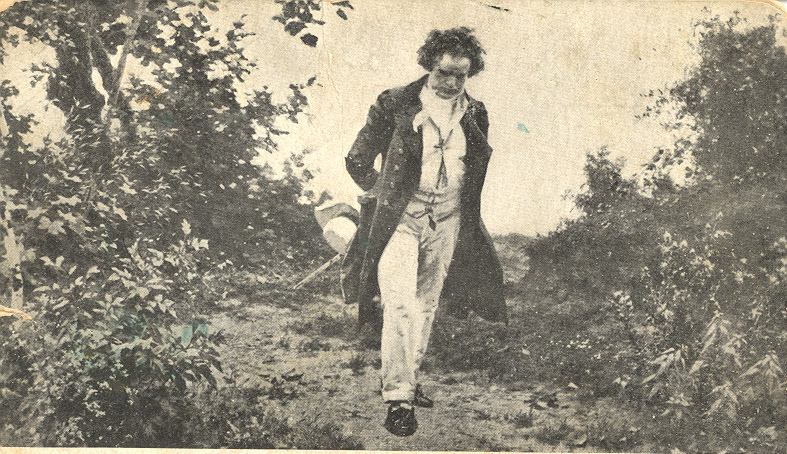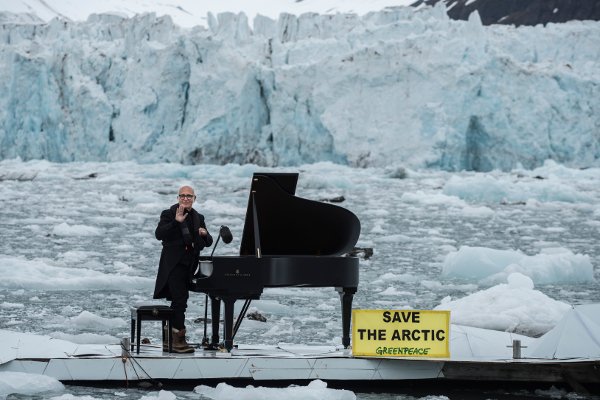On Music and Activism
By Zack Ferriday
Musical activism reached its zenith in the wake of the political turbulence of the 1960s and ‘70s. From Bob Dylan’s “With God on Our Side” to Sam Cooke’s “A Change is Gonna Come,” the cold war era was a time when people, even faced with the prospect of global annihilation, still believed in the power of music to promote peace and equality. And while change did come to some extent, namely in the form of the civil rights movement, the end of the cold war only brought a tenuous reluctance toward global conflict predicated on the less-than-peaceful doctrine of mutually assured destruction. Nevertheless, the idea that music can influence politics continues to be a popular talking point for artists, writers, and musicologists alike. It’s long been a cliché to see “Ode to Joy” rolled out by governments of varying democratic integrity as an anthem of political unity, within a wider tendency to see classical music as a unifying force; Barenboim’s West-Eastern Divan Orchestra, which, despite fairly unanimous praise in the West, has been criticized in the East for its perpetuation of an ideal of universal peace grounded within a distinctly Western cultural tradition. Can music alone ever be a successful mode of political activism?

PHOTO JULIUS SCHMID (PUBLIC DOMAIN), VIA WIKIMEDIA COMMONS
Writing on the topic last year, Peter Manuel argued that “the 1950s-70s represented a sort of high point for a set of international socio-political movements which, although diverse, were animated by shared Enlightenment values of liberal secular humanism.” Manuel’s article makes reference to “the end of history,” a term coined in 1992 by the American political economist Francis Fukuyama, which argues that free market capitalism and liberal democracy would form the end-point of human progress—the Enlightenment realized. And while for nine years, the notion of “the end of history” was discussed and disputed by philosophers and writers alike, it was in the first few years of the 21st century—notably 9/11 and the 2008 financial crash—that, as Slavoj Žižek once noted, the Enlightenment model of secular humanist unity was broken apart. It seems surprising then, that many of us in the music world continue to perpetuate the notion that music can constitute actual change—be it festival themes like Lucerne’s “Identity” last year, protests such as Greenpeace’s Requiem for Artic Ice, which saw different ensembles perform in front of Shell’s London headquarters, or the current Beethoven Pastoral Project, which predicates its environmental awareness campaign on the composer’s affinity for nature. The latter “aims to draw attention to the theme of ‘mankind and nature,’ represented in the Romantic sense in the ‘pastoral’ music, and to deal actively with today’s urgent questions of environmental protection and global sustainability, and achieving the aims of the Paris Climate Agreement.”
These are all noble projects, but it’s important to point out that they are not the same as political action. In fact, it’s the continuation of the Enlightenment notion of a collective humanism in the face of a world that, despite globalization, has become increasingly fragmented across a number of different social and political strata, and which should be dealt with as such. Part of classical music’s conceit (as well as other genres), even among many contemporary audiences, is the notion of a universal beauty in music, and there’s nothing fundamentally wrong with that—scroll through music groups on Facebook, or through the comments section on YouTube videos, and you’ll see people commending the universal truth of Mozart or the transcendent power of his music to heal the soul. If it’s a conceit that enables a temporary mode of aesthetic enjoyment for audiences, then so be it. What a conceit can’t do is provide the foundation for concrete political change.
I saw the West-Eastern Divan Orchestra play last summer to a pretty full Waldbühne, an outdoor venue in Berlin that holds over 20,000 people. Was Middle-Eastern peace a talking point among those of us sitting under the sunny Berlin sky that evening? Not quite. There was plenty of discussion surrounding beer-carrying logistics, and the group of typical concertgoers sitting behind me seemed more preoccupied with how “old and fat” an actor they’d spotted in the VIP section had become. The orchestra played pieces by Glinka, Shostakovich, and Tchaikovsky, and the solo pianist was Martha Argerich, from Argentina. Again, the purported “universal beauty” that holds the key to mutual understanding in the Middle East is rooted elsewhere, in an Enlightenment tradition (this time Russian). The disaster of Western political intervention in the Middle East, the reliance on classical music as a form of activism—both share the same self-assuredness of Western, liberal secular humanism, the same one-size-fits-all approach.
There’s also a kind of lazy, blind faith inherent in the idea that music can change the world. Charles Kaye, the director of the World Orchestra for Peace, (set up in 1995 after 50 years of the United Nations), once said: “If we poor musicians from 35 countries can get together on a stage and talk the same language, why can’t the politicians?” Perhaps he’s correct, and perhaps if Trump and May and Assad and Putin armed themselves with instruments instead of fighter jets and started a quartet, things would be different. (Condoleezza Rice’s background as a pianist suggests even that wouldn’t help.) But the answer to Kaye’s question is, of course, because international diplomacy is never reduced to a single language, and there’s a significant difference between playing Wagner and resolving political conflict. There’s also a slightly grotesque amount of ego-massaging by those who use a very visible, almost ceremonial platform like classical music performance on which to stand and express a sentiment that’s as much anybody else’s as it is their own—namely that world peace is a good thing. More bizarre is that somebody like Valery Gergiev would find themselves conducting both an “orchestra for peace,” and in the ruins of the Palmyra Roman theater days after heavy bombing, and the site of mass-executions carried out by children. Gergiev is known as a Kremlin favorite—it’s difficult not to question what it means to cozy up with somebody like Putin while supposedly advocating—an undefined and markedly vague—peace among mankind.
The fallacy of a universal language in music has a twofold effect. Not only do we further entrench Western exceptionalism (both musical and ideological), but music becomes a diversion from real political and social organizing, from activism proper. I’ve lost count of the number of talks and workshops I’ve attended that substitute action for intellectualism, and demonstration for chin-stroking. There’s nothing wrong with discourse and there’s nothing wrong with embracing a composer’s affinity for nature, or for positivity and optimism in music. Projects that promote these ideas will ultimately do more good having existed than if they had not, but there is perhaps an underlying echo of Trump’s curious “we write symphonies” (which could equally have been “we write rock songs” or “we write pop”), when we’re the ones prescribing cures to the world’s ailments. It’s important that activism in music isn’t slapping a peace sign on a Wagner opera, and that universalism doesn’t fall into a totalizing trap. ¶
Title image from LUDOVICO EINAUDI, “ELEGY FOR THE ARTIC.”

